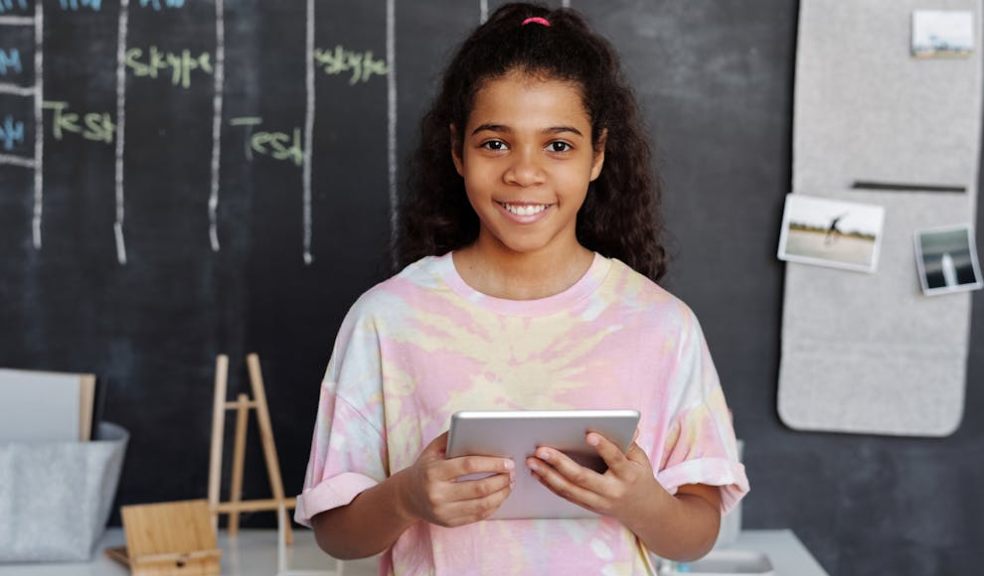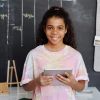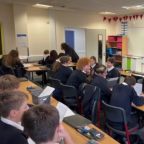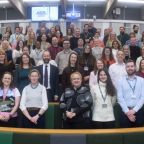
Educational Advancements in Exeter: The Role of Digital Resources in Local Schools and Colleges
The digital leap is reshaping how education unfolds in classrooms across Exeter, offering students and educators alike a new vista of possibilities. With the advent of technology, traditional teaching methods are being augmented, promising a more interactive and engaging learning experience. This shift is not merely about replacing pen and paper with screens; it's about enhancing the educational landscape to make learning more accessible, engaging, and effective for everyone involved. As Exeter's schools integrate digital tools into their curricula, students are finding that concepts and ideas come to life in ways previously unimaginable, allowing for a deeper and more meaningful understanding of their subjects.
This transformation is marked by a significant increase in the use of digital resources, from interactive whiteboards to educational apps, which support a variety of learning styles. Teachers are now equipped to provide immediate feedback, tailor lessons to individual student needs, and facilitate collaborative projects extending well beyond the traditional classroom's confines. The move towards digitalisation also prepares students for a world where technology plays a central role in almost every aspect of life. As Exeter's educational institutions continue to adopt these digital tools, the focus remains on creating an environment where technology enhances the learning experience, rather than detracting from the human elements of education that are so vital to student development.
Interactive Learning Offers a New Horizon for Students
Interactive learning tools are revolutionising the classroom environment, offering students a dynamic way to engage with their studies. These tools, ranging from educational software to virtual reality experiences, allow learners to immerse themselves in subjects, turning abstract concepts into tangible experiences. This hands-on approach caters to various learning styles, ensuring that each student can find a method that resonates with their personal learning preferences. The beauty of these technologies lies in their ability to make learning an active process, where students are not just passive recipients of information but active participants in their educational journey.
The implementation of these tools in Exeter's schools signifies a shift towards a more inclusive and adaptive educational model. Teachers can use technology to craft lessons that inform and inspire students, fostering a love for learning that goes beyond the classroom. By integrating interactive learning tools into the curriculum, educators are setting a new standard for education in Exeter, one that prepares students for a future where critical thinking and adaptability are key.
Empowering Teachers with Cutting-Edge Digital Resources
The empowerment of teachers with cutting-edge digital resources is a cornerstone of educational innovation in Exeter. With access to a wide array of online tools and platforms, educators can enhance their teaching methods, offering a more enriched learning experience for their students. These resources provide teachers with the flexibility to adapt lessons to suit the diverse needs of their classroom, enabling personalised instruction that can help each student achieve their full potential. Whether it's through interactive simulations, digital assessments, or online collaborative projects, these tools are transforming the way teachers plan and deliver their lessons.
This digital evolution supports continuous professional development among teachers. With the wealth of online courses and professional learning communities available, educators in Exeter can stay ahead of educational trends and technologies. This not only benefits their professional growth but also ensures that their teaching practices remain relevant and effective in today's rapidly changing world. As teachers become more proficient in using these digital resources, they pave the way for a future where education in Exeter is defined by innovation, engagement, and excellence.
The Role of Digital Libraries and Online Resources
Digital libraries and resources are playing a pivotal role in enriching student learning in Exeter. By offering instant access to a vast array of information and knowledge, these digital platforms break down the barriers of traditional education, allowing students to explore their subjects in much greater depth. Whether it's historical documents, scientific journals, or literary works, the information is available at their fingertips, encouraging a culture of self-directed learning and curiosity. This wealth of resources supports a more diverse and comprehensive educational experience, catering to students' varied interests and academic needs.
Among these digital resources, interactive flipbooks have emerged as a particularly engaging tool for both teachers and students. These flipbooks transform static content into interactive experiences, with features like embedded videos, links, and quizzes that make learning more engaging. By integrating interactive flipbooks into their teaching, educators can provide a richer, more dynamic learning environment. This not only enhances the quality of education but also prepares students for a digital future, equipping them with the skills and knowledge to navigate the complexities of the modern world.
Bridging the Digital Divide
The digital divide represents a significant challenge in Exeter, where disparities in access to technology can limit educational opportunities for some students. Addressing this issue is crucial for ensuring that all learners, regardless of their socioeconomic status, have equal opportunities to benefit from the digital resources that are transforming education. Initiatives to provide laptops, tablets, and reliable internet access to students who need them most are steps towards a more equitable educational landscape. These efforts ensure that every student can participate in online learning, access digital textbooks, and use educational software, levelling the playing field and fostering a more inclusive learning environment.
Beyond hardware, equipping students with digital literacy skills is essential for navigating today’s technology-driven world. Schools and community programs in Exeter are increasingly focusing on teaching students how to use technology responsibly and effectively. This includes understanding how to research information online, evaluate digital sources for credibility, and use online collaboration tools. By empowering students with these skills, educators are preparing them for academic success and future careers, ensuring that the digital divide does not hinder the potential of Exeter's next generation.
The Environmental Impact of Digitalisation in Education
The shift towards digitalisation in education carries with it significant environmental benefits, marking a positive step towards sustainability within Exeter's schools and colleges. By reducing the reliance on physical textbooks and paper-based materials, digital resources help to lower the carbon footprint associated with the production and distribution of educational materials. This move towards digital textbooks, online assignments, and electronic communication between teachers and students contributes to a decrease in paper waste, promoting a greener approach to education. Moreover, the ability to update digital materials easily means that resources remain current without the need to print new editions, further reducing environmental impact.
In addition to saving paper, the digitalisation of education encourages a culture of resource sharing and reuse. Digital platforms enable the sharing of resources among schools and teachers, minimising the need for each institution to purchase its own physical materials. This supports environmental sustainability and creates a sense of community and collaboration among educators. As Exeter’s educational institutions continue to embrace digital resources, they are setting an example for students about the importance of sustainability in all aspects of life, including learning. This holistic approach to digitalisation demonstrates a commitment to both improving education and protecting the planet for future generations.
The adoption of interactive learning tools, digital libraries, and innovative teaching methods not only enhances the quality of education but also prepares students for a world where digital literacy is paramount. This shift towards a more connected and technologically equipped classroom environment promises to enrich the learning experience for all, making education more engaging, accessible, and inclusive. The focus on leveraging digital advancements to support and enhance education will continue to drive progress, ensuring that every student has the tools and opportunities to succeed in an increasingly digital world.




















